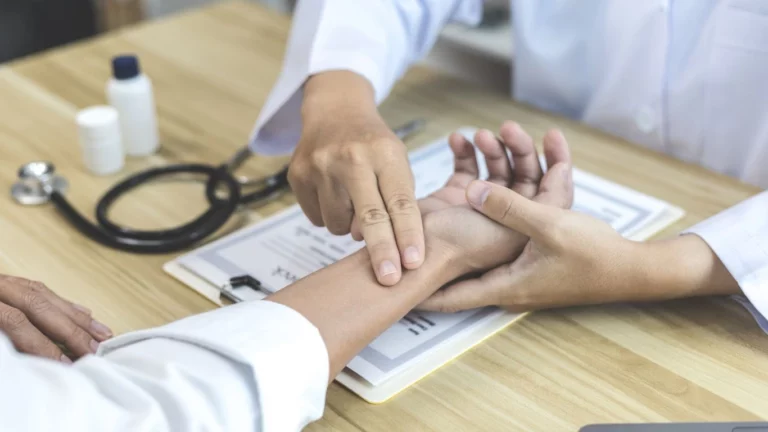High Blood Pressure Triggers to Avoid – A Simple Guide
Struggling with high blood pressure? Don’t worry—you’re not alone! Let’s break down the common triggers and how to steer clear of them for a healthier, happier life.
High blood pressure (or hypertension) is something many people deal with, but knowing what triggers it can help you keep your blood pressure in check. Stress, certain foods, and other habits might send your numbers skyrocketing, but with the right adjustments, you can stay on top of your health.
In this article, we’ll talk about the most common blood pressure triggers you’ll want to avoid and give you tips on how to live your best, healthiest life without all the worry. Let’s dive in!

Alt Text: A concept image showing the effect of high blood pressure on the heart.
What Is High Blood Pressure?
Before we jump into the triggers, let’s do a quick refresher on what high blood pressure is. It’s when the force of the blood against the walls of your arteries is consistently too high. Over time, this can damage your heart, kidneys, and other organs, so it’s definitely something you want to manage carefully.
Common Triggers of High Blood Pressure
Some triggers are more obvious than others, but most are things you can control with a little attention to your lifestyle. Let’s take a look at some of the big ones.
1. Too Much Salt
Let’s start with the most common one: salt. We all know salt tastes great, but it can seriously mess with your blood pressure. Why? It makes your body hold onto more water, which increases the volume of blood in your arteries, putting more pressure on the walls.
Tip: Keep an eye on processed foods like canned soups, frozen meals, and fast food. They’re loaded with hidden salt. Try cooking at home more so you can control how much salt goes in your food. You can also swap regular salt for a salt-free seasoning mix for some added flavor.
2. Stress and Anxiety
Life gets stressful, no doubt. But constant stress can lead to high blood pressure over time. When you’re stressed, your body produces adrenaline and cortisol, hormones that temporarily raise your blood pressure. If you’re constantly in fight-or-flight mode, your heart has to work harder than it needs to.
Tip: Try practicing stress-reducing activities like deep breathing, meditation, or even something simple like a walk in nature. Regular exercise is a great way to burn off stress too!

Alt Text: A person feeling stressed while working, which can lead to high blood pressure.
3. Caffeine Overload
If you’re a coffee lover, you might want to pay attention to how much caffeine you’re consuming. Caffeine can cause a temporary spike in blood pressure. It doesn’t affect everyone the same way, but if you’re already on the edge with hypertension, too much caffeine might push you over.
Tip: Consider cutting back on your daily coffee or energy drinks. If you really need that caffeine boost, try switching to green tea—it has less caffeine and also comes with some heart-health benefits!
4. Lack of Physical Activity
Being sedentary is a huge risk factor for high blood pressure. When you’re not moving enough, your heart works harder to pump blood, which can increase your blood pressure. On top of that, it can contribute to weight gain, which is another factor in hypertension.
Tip: Regular physical activity is key. You don’t have to go all out with intense workouts; even a brisk walk or a light jog a few times a week can make a big difference. Try making it a habit so it becomes part of your routine.
5. Excessive Alcohol Intake
A couple of drinks might not hurt, but too much alcohol can raise your blood pressure. Chronic drinking can lead to long-term increases in blood pressure, and if you already have hypertension, it can make things worse.
Tip: Stick to moderate drinking—one drink per day for women and two for men. If you find it hard to limit your intake, try tracking how much you drink and setting small goals to cut back over time.

Alt Text: A person holding a glass of alcohol, an activity that can trigger high blood pressure.
6. Unhealthy Diet
A diet rich in unhealthy fats, sugars, and processed foods can put a strain on your heart and arteries. These foods can lead to weight gain, high cholesterol, and other issues that contribute to high blood pressure.
Tip: Go for a diet that’s rich in whole foods, like fruits, vegetables, lean proteins, and healthy fats. The Mediterranean diet is a great example. It’s heart-healthy and full of delicious, nourishing foods.
7. Not Getting Enough Sleep
If you’re not getting enough quality sleep, your body might not be able to properly regulate your blood pressure. Sleep is when your body can recharge and recover, so if you’re constantly running on low sleep, it can mess with your blood pressure.
Tip: Try to aim for 7-9 hours of sleep each night. If you have trouble sleeping, practice good sleep hygiene—avoid screens an hour before bed, create a calm, quiet environment, and try winding down with a relaxing activity.
8. Smoking
Cigarettes don’t just damage your lungs—they also cause your blood vessels to constrict, which increases your blood pressure. Smoking can also raise your heart rate, which puts extra strain on your cardiovascular system.
Tip: If you smoke, quitting is one of the best things you can do for your heart health. It might be tough, but there are plenty of resources out there to help you quit for good!

Alt Text: A person smoking a cigarette, which can be a major trigger for high blood pressure.
Tips for Managing High Blood Pressure
Managing blood pressure isn’t just about avoiding triggers—it’s also about building habits that help lower your pressure. Here are a few additional tips:
- Monitor your blood pressure regularly: Keep track of your numbers at home or with your doctor.
- Eat more potassium-rich foods: Foods like bananas, spinach, and potatoes help balance out the effects of sodium.
- Stay hydrated: Drinking plenty of water helps your body function at its best and can support healthy blood pressure levels.
Conclusion
Managing high blood pressure is all about being proactive. By avoiding triggers like too much salt, stress, and alcohol, and building positive habits like staying active, eating right, and getting enough sleep, you can make a real difference. It’s about making small, sustainable changes that work for you. So, take charge of your health and make these adjustments—it’s never too late to start!
Appendices
FAQs
- Can stress really affect my blood pressure? Yes, stress can cause a temporary increase in blood pressure, and long-term stress can lead to chronic hypertension. Managing stress is key for better blood pressure control.
- How can I tell if my caffeine intake is affecting my blood pressure? If you notice a spike in your blood pressure or feel jittery after consuming caffeine, it might be a sign you’re overdoing it. Try cutting back to see if it helps.
- Are there any foods I should avoid to keep my blood pressure healthy? Yes, foods high in salt, unhealthy fats, and refined sugars can negatively affect blood pressure. Focus on whole foods like fruits, vegetables, and lean proteins.
- Can exercise help lower high blood pressure? Absolutely! Regular physical activity strengthens your heart and helps regulate blood pressure over time.
- What should I do if my blood pressure is consistently high? If you’re consistently seeing high numbers, it’s important to talk to your doctor. They can help you develop a plan to manage your blood pressure effectively.
References
- American Heart Association (2024). Understanding High Blood Pressure. AHA Article
- National Institutes of Health (2024). Tips for Lowering High Blood Pressure. NIH Article
- Mayo Clinic (2024). How to Control Your Blood Pressure. Mayo Clinic Article
Disclaimer
The information provided in this article is for educational purposes only and is not a substitute for professional medical advice. Always consult with your healthcare provider before making any significant changes to your diet, exercise routine, or medication. Individual needs may vary.

Dr. Gwenna Aazee is a board-certified Internal Medicine Physician with a special focus on hypertension management, chronic disease prevention, and patient education. With years of experience in both clinical practice and medical writing, she’s passionate about turning evidence-based medicine into accessible, actionable advice. Through her work at Healthusias.com, Dr. Aazee empowers readers to take charge of their health with confidence and clarity. Off the clock, she enjoys deep dives into nutrition research, long walks with her rescue pup, and simplifying medical jargon one article at a time.







